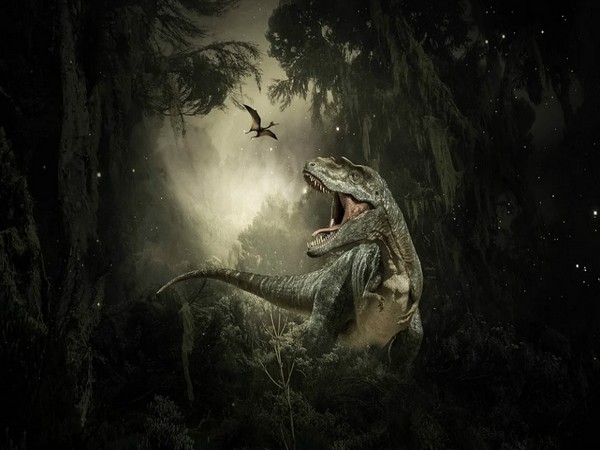Science News Roundup: Europe's largest meat-eating dinosaur found on Isle of Wight; NASA to form a scientific team to study UFOs and more
Since being discovered in 2007, astronomers have struggled to understand what causes phenomena called fast radio bursts involving pulses of radio-frequency electromagnetic radiation originating from places inside our Milky Way and other galaxies.

Following is a summary of current science news briefs.
Europe's largest meat-eating dinosaur found on Isle of Wight
Fossilized bones discovered on a rocky seashore on England's Isle of Wight are the remains of a meat-eating dinosaur that may be larger than any other known from Europe, a beast that was a cousin of the biggest carnivorous dinosaur species on record. Paleontologists said on Thursday they have found parts of the skeleton of the dinosaur, which lived about 125 million years ago during the Cretaceous Period, including bones of the back, hips, and tail, some limb fragments but no skull or teeth. Based on the partial remains, they estimated that the dinosaur exceeded 33 feet (10 meters) long and perhaps reached much more.
NASA to form a scientific team to study UFOs
NASA said on Thursday it plans to assemble a team of scientists to examine "unidentified aerial phenomena" - commonly termed UFOs - in the latest sign of the seriousness with which the U.S. government is taking the issue. The U.S. space agency said the focus will be on identifying available data, the best ways to gather future data, and how it can use that information to advance scientific understanding of the issue. NASA tapped David Spergel, who formerly headed Princeton University's astrophysics department, to lead the scientific team and Daniel Evans, a senior researcher in NASA's Science Mission Directorate, to orchestrate the study.
Diabetes may increase long COVID risk; COVID while pregnant is linked to baby brain development issues
The following is a summary of some recent studies on COVID-19. They include research that warrants further study to corroborate the findings and that has yet to be certified by peer review. Diabetes may increase long COVID risk
Tiny meteoroid bops $10 billion Webb space telescope
A tiny meteoroid struck the newly deployed James Webb Space Telescope in May, knocking one of its gold-plated mirrors out of alignment but not changing the orbiting observatory's scheduled to become fully operational shortly, NASA said on Wednesday. The little space rock hit the $10 billion telescope sometime in late May and left a small but noticeable effect in the telescope's data, NASA said in a statement, adding that it was the fifth and largest hit to the telescope since its December launch.
Astronomers ponder 'cosmic mystery' over powerful radio wave bursts
Powerful bursts of radio waves emanating from a distant dwarf galaxy that were detected using a massive telescope in China are moving scientists closer to solving what one called a "cosmic mystery" that has lingered for years. Since being discovered in 2007, astronomers have struggled to understand what causes phenomena called fast radio bursts involving pulses of radio-frequency electromagnetic radiation originating from places inside our Milky Way and other galaxies. Radio waves have the longest wavelengths in the electromagnetic spectrum.
- READ MORE ON:
- U.S.
- Daniel Evans
- James Webb Space Telescope
- Europe
- David Spergel
- COVID
- Webb
- Milky Way
- NASA
- England
- China
ALSO READ
The Overlooked Burden of Long COVID in Asia
Delhi Government Criticized Over Unspent Covid Funds and Ineffectual Response
Long-Term Health Risks Persist for Covid-19 Hospitalized Patients
Debt Relief or Debt Trap? The Mixed Impact of Mortgage Forbearance During COVID-19
BJP Criticizes Delhi Government Over COVID-19 Healthcare Resource Mismanagement










